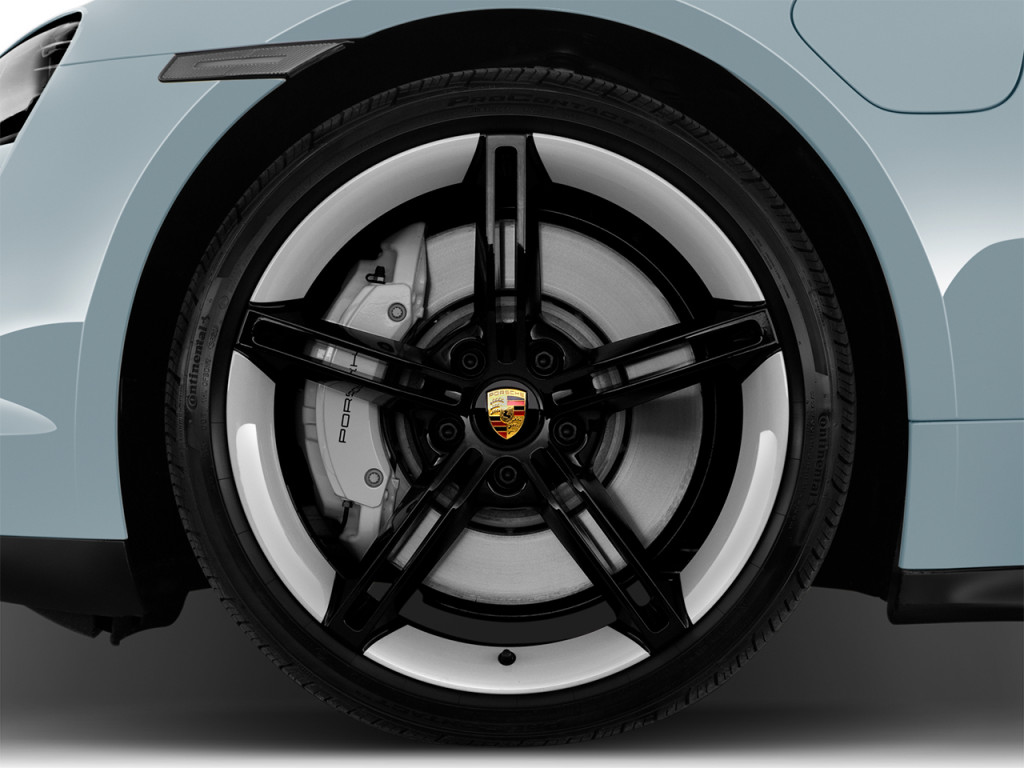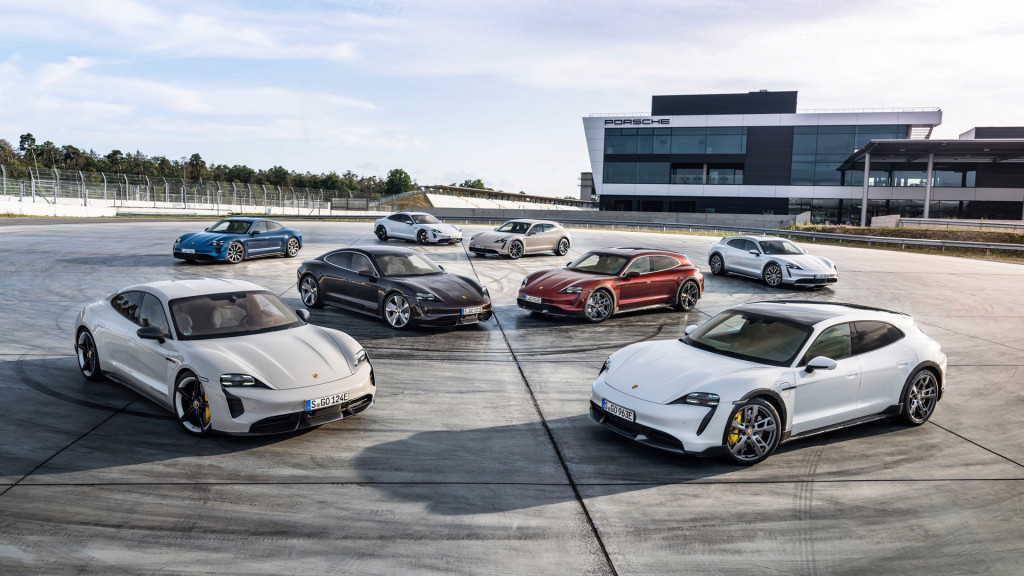One-pedal driving allows EV drivers to decelerate without touching the brake pedal, while ramping up regeneration to recover energy. But Porsche thinks there's a better way.
The Porsche Taycan makes greater use of coasting, only using regenerative braking when the brake pedal is actually pressed. In a recent press release, the automaker explains the thinking behind that.
"This is a more efficient way of driving," Martin Reichenecker, senior manager for chassis testing at Porsche Engineering, said in the release, "because it keeps the kinetic energy in the vehicle."

2023 Porsche Taycan 4S AWD Wheel Cap
The argument is essentially that one-pedal driving involves energy losses both when decelerating and accelerating. So, in the Porsche engineering department's view, it's better to allow the car to continue coasting after the driver removes their foot from the accelerator pedal, and add regenerative braking only when it's actually time to decelerate.
This restates what Porsche has said before. Ahead of the Taycan's launch, members of its development team told Green Car Reports the car doesn't have one-pedal driving for both efficiency and drivability reasons, then noting that the driving characteristics also more closely paralleled those of Porsche's internal-combustion models.
The Taycan is still capable of regenerative braking in 90% of driving situations, the release noted. Porsche engineers also view it as valuable for other things, including avoiding the need for larger friction-brake components to compensate for the added weight of a battery pack. Even a more limited use of regenerative braking still means less use of the friction brakes, an important consideration in light of potential European regulations on particulate emissions from brakes, Porsche noted.

2023 Porsche Taycan
Strategies for mixing regenerative and friction braking vary. While the Taycan (and related Audi E-Tron GT) have brake-blended regeneration, the 2024 Audi Q8 E-Tron has a different system that passes the baton from motor-based regeneration to the friction pads, likely without the driver ever knowing.
BMW used to embrace one-pedal driving. But more recently, in its iX, i4, and i7, it's recognized that coasting—or coasting most of the time—has an efficiency advantage.
And while the debate about coasting and what each pedal should do will continue, some companies a day when friction pads might be eliminated completely. Stellantis' DS Automobiles brand demonstrated this idea in a concept car shown in 2022, based on learnings from Formula E racing.












